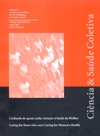0340/2008 - COMPREENDENDO O IDOSO USUÁRIO DE PRÓTESES AUDITIVAS
UNDERSTANDING THE SENIOR USER OF HEARING PROSTHESES
Autor:
• Karina Mary de Paiva - Paiva KM - Florianópolis, SC - Universidade de São Paulo - <kmvianna@gmail.com>Área Temática:
Não CategorizadoResumo:
RESUMOObjetivo: Identificar os fatores envolvidos na busca e no uso de próteses auditivas pelos idosos, assim como o conhecimento dos mesmos quanto à Política de Atenção à Saúde Auditiva.
Métodos: Foram selecionados 25 idosos de ambos os sexos usuários de próteses auditivas adquiridas em uma empresa localizada em Vitória/ES. Foi realizado contato telefônico e convite para participarem da pesquisa comparecendo na empresa para responderem a um questionário pré-elaborado.
Resultados: Os resultados mostraram que a maioria dos idosos entrevistados (52%) usa o(s) aparelho(s) durante todo o dia, o que sugere uma boa adaptação ao processo. Treze idosos relataram procurar a empresa de próteses auditivas por um interesse próprio. As facilidades quanto ao uso envolvem a melhora da comunicação (64%) e para ouvir TV (64%), enquanto as dificuldades foram quanto ao uso em ambientes ruidosos, 56% não conseguem compreender o que é dito em palestras e igrejas e o quanto ao uso do telefone, 72% relataram não apresentar melhora com a protetização. Dados mostram também que 88% dos idosos participantes desconhecem a política de doação de aparelhos auditivos e 100% não tem conhecimento desse tipo de atendimento na Grande Vitória/ES.
Conclusão: As pesquisas e a prática de serviços de saúde envolvendo suporte com relação às questões auditivas, ainda têm um largo curso a percorrer. Há necessidade de mudança de diretriz por parte dos gestores com a finalidade de efetivar a própria política que define responsabilidades ao Estado.
Descritores: Idoso. Perda Auditiva. Próteses Auditivas. Políticas Públicas.
Abstract:
ABSTRACTObjective: Identify the factors involved in the search and use of hearing prosthesis used by aging seniors as well as the knowledge of these as to Attention Policies for Hearing Health.
Methods: 25 aging seniors of both sexes using hearing prosthesis that were acquired at a company located in the city of Vitória/ES were selected. Contact was made by phone and also the invitation to participate in the research at the company in order to answer a questionnaire developed beforehand.
Results: The results demonstrated that most of the aging seniors interviewed (52%) use the device(s) all day which suggests good adaptation to the process. Thirteen aging seniors reported having made contact with the hearing prosthesis company on their own interest. The advantages at use involve better communication (64%) and listening to TV (64%) while the difficulties were due to noisy environments, 56% were not able to understand what was being said at lectures and at church and also on the telephone, 72% reported no improvement with the prosthesis. Dada also demonstrate that 88% of the aging participants do not know about donation policies for hearing devices and 100% do not know about this kind of service in Grande Vitória/ES.
Conclusion: Research and practice of health services involving the support related to hearing issues still have a long journey to run. There is a need for change of direction lines on behalf of managers with the objective of putting in action the policies which define responsibilities to the State.
Keywords: Aging Seniors. Hearing Loss. Hearing Prosthesis. Public Policy.













